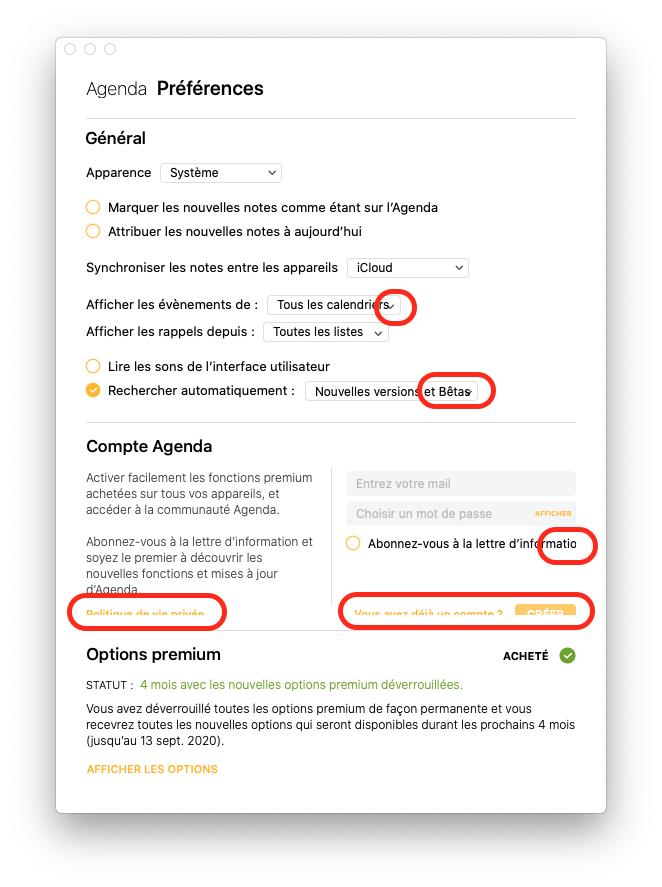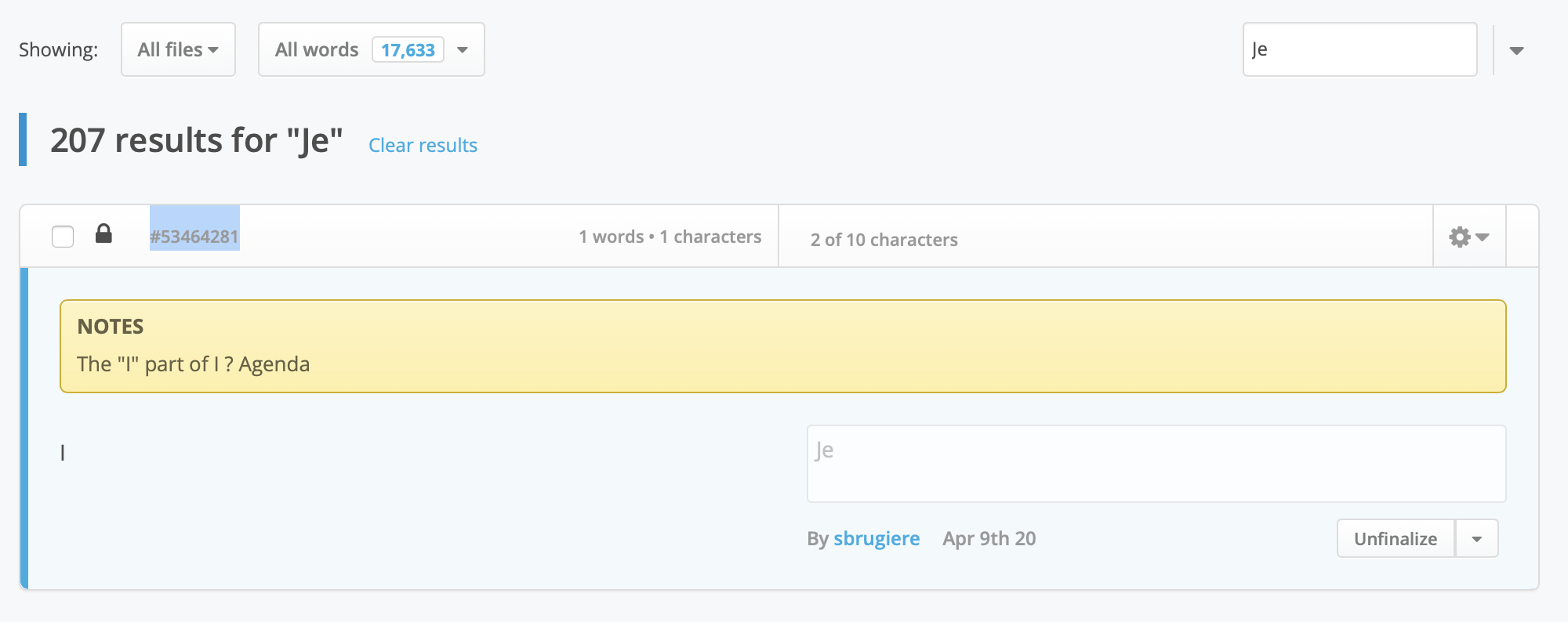Great, I’ve added you to the team @amatcuram!
Update: Hooray, the French translation of Agenda will soon be available as we have just released the first beta version including French. We’d invite everybody to give it a try and let us know if you find any aspects that can be improved, need to be corrected, or are giving issue. A big thanks to all translators to bring it to this important point, can’t wait to have it in the hands of all our French speaking users! ![]()
That’s really great!!!
I took a first peek at the app in French nd overall it doesn’t look too bad.
I noticed layout issues in the Preferences for instance. How do you want us to report/address them?? Sometimes we can tweak the text to sort of make it fit, but sometimes, it’s mostly in your hands.
What do you want? Emails, reports here……
Corentin
I made some adjustments and corrections in OneSky for various little things I found, but I just saw one I couldn’t fix:
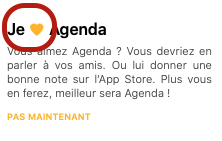
I can’t find the “Je” in OneSky and in this case, it should be J’ instead of Je.
Corentin
And also, same as in Spanish, the All Day section is too short for the string in French (and we can’t change the phrasing since it’s a standard term used in Calendar itself…).
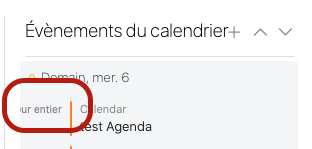
Corentin
And also, same as in Spanish, the All Day section is too short for the string in French
OK, will check
Thanks ![]() I must have been blind…
I must have been blind…
Corentin
Here’s a new one that I can’t change:
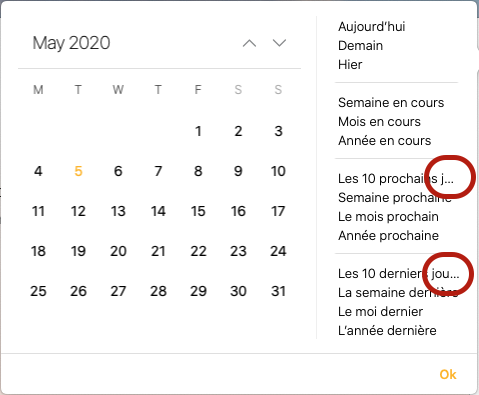
Corentin
Ok, will have a look
Je suis étonné par la traduction en français « Sur l’Agenda » …
En français nous disons « A l’agenda » .
Exemple : Qu’y a-t-il à l’agenda de notre réunion de ce jour? Qu’ais-je à l’agenda de ma journée…
« Sur l’Agenda » cela sonne faux…
In the right side bar, in french there is a strange thing just right next to today’s date : « Aujourd’hui, à mer.6 » .
The « à » is useless. It should not be indicated.
On Mac : Main menu : File -> « Enregistrer la recherche en tant que vue d’ensemble » doesn’t seem appropriate. Too long and confusing…
Why not simply : « Enregistrer la recherche » ? Just like in other applications…
Les deux s’utilisent en fait et Linguee donne de très nombreux exemples avec « sur l’agenda ». Personnellement, ça ne me perturbe pas. Par contre, la localisation actuelle a de très nombreux soucis de capitalisation (comme Agenda dans cet exemple) qui ont depuis été corrigés.
Fixed!! Thanks ![]()
I perfectly get your point, although the app in English doesn’t just say “Save the search result”. The string in French is just reflecting the English one here. It;'s wordy for sure, but I’m not sure we can take the liberty of changing it in this way :-\
Corentin
Je suis désolé, j’insiste, mais « sur l’agenda » ne se dit pas en français dans le sens qui nous occupe. C’est une traduction littérale peu élégante. En français, nous disons « A l’agenda » ou bien « A l’ordre du jour ».
I’m sorry, I insist, but « Sur l’agenda" is not said in French in the sense that occupies us. It is an unattractive literal translation. In French, we say “A l’agenda” or “A l’ordre du jour”.
If “A l’agenda” is a common expression, I’d prefer that too. In the other languages we also translate the term, and if possible try to keep the word agenda in it (Dutch: Op de agenda, German: Auf der Agenda).
Btw funny French also has “A l’ordre du jour”, we just changed the equivalent in German (Auf der Tagesordnung) to “A l’agenda (Auf der Agenda)”
« A l’agenda » is fine in french, yes.
I’m not axed one way or the other, but I’d like us to make a consensus decision. No one else has complained about this one yet (which — I agree, doesn’t make it right either), and I’d like to know what others think too before changing it everywhere.
Despite what you mentioned, Sur l’agenda is used by a lot of people in a lot of places. Linguee shows you a number of exemples: https://www.linguee.fr/francais-anglais/search?source=auto&query=sur+l%27agenda
And you’ll notice that many of them are on official websites like the European commission or different governmental websites.
I also ran it through Antidote, which is pretty good at flagging anglicisms and other misuse of the language and they also didn’t have anything to say about it.
Anybody else would care to comment on the use of this phrasing? Personally, I still fail to see what’s wrong with it.
